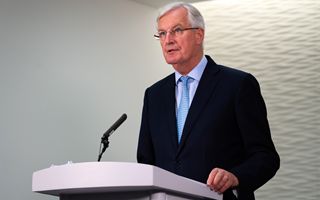(Finance) – The French Parliament has voted no confidence in Prime Minister Michel Barnierworsening the political crisis of the large Eurozone economy. The motion of no confidence passed with 331 voteshigher than the necessary 288.
The politician, in his farewell speech, said he was sure that this motion of no confidence “it will make everything more severe and more difficult“. Furthermore, he stressed that the new government will face the same problems as him, saying that he would “like to hand out money even if there is none” and that “this will not disappear with the magic of a motion of no confidence”.
The president Emmanuel Macron he landed in Paris, returning from Saudi Arabia, a few minutes before the announcement of the results of the vote. Yesterday he stated that he will not resign before the end of his term in 2027.
However, the financial markets showed no signs of disorder in today’s session. The index CAC 40 closed the day up 0.66%slightly outperforming the STOXX Europe 600 (+0.37%). However, the French blue-chip index is a rare underperformer among developed stock markets in 2024, marking -3.2% since the start of the year due to the political turmoil that erupted in early summer. To have a comparison in the euro area, the FTSE MIB marks +12% since the beginning of the year and the DAX +20%.
The performance of 10-year French bonds was almost stable at 2.90% (-1 basis point today), while the spread on German bonds for the same period reduced to 84 basis points. Last week, the gap between OAT and Bund reached 90 basis points, the highest level since 2012. French spreads are well above Spanish spreads (10-year at 2.75%) and now on par with those of the Greece.
There political crisis worsened on Mondayfaced with the impossibility of approving the social security budget and despite the numerous concessions made by Barnier to the far right, with the prime minister deciding to use thearticle 49.3 of the Constitutionwhich allows the government to force through legislation unless a motion of no confidence is passed. The main objective was to implement the social security budget. This decision opened up the possibility for members of parliament to present a motion of censure against Barnier’s government, which was promptly seized upon by left-wing parties and Marine Le Pen’s RN.
Now however, there will be no dissolution of the National Assembly or early elections before July 2025as the Constitution provides for a minimum period of one year between elections. Therefore, based on the forces present with a Parliament split into three, President Emmanuel Macron will have to appoint a new prime minister. However, it seems unlikely that France will have a budget for 2025 and an interim budget will likely be implemented, with a public deficit exceeding 6% of GDP in 2024.
Despite the great uncertainty of these days and the weight of France in Europe, the impact on other markets was limited. Italy, for example, saw the spread fall further towards lows since 2021.
“It has been a significant week for France, with volatility likely to remain high until the end of the year,” commented Alex Everett, Investment Manager rates team at abrdn – However, the overall European spreads have behaved in a surprisingly balanced way during the last few market sessions. This reflects a market that considers these issues as a problem largely specific to Francewhich is definitely a good thing. The ECB’s growing dovishness also supports risk appetite in general, even in the face of these political problems.”
